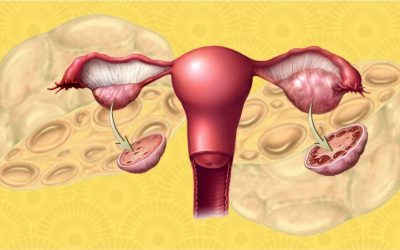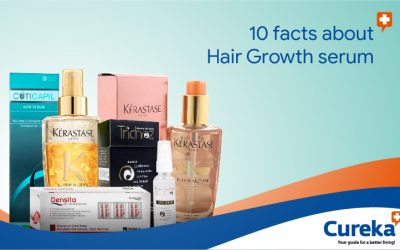Common Ear Care Mistakes and How to Avoid Them
Ears are one of the most delicate parts of the body, yet they often don’t get the care they deserve. While most of us think we’re doing our best to maintain healthy ears, common practices often lead to harm rather than good. Let’s explore five common ear care mistakes and how you can avoid them to ensure your ears stay in great condition.
1. Using Cotton Swabs for Self Ear Wax Removal
Why It’s a Mistake:
Cotton swabs might seem like the go-to tool for cleaning your ears, but they’re actually one of the worst things you can use. Instead of removing earwax, they often push it further into the ear canal, which can lead to blockages, infections, or even damage to your eardrum. Earwax is actually your body’s natural way of protecting your ears from dirt, dust, and bacteria.
How to Avoid It:
Use Safe Cleaning Alternatives: Opt for over-the-counter ear drops designed to soften earwax. These allow the wax to naturally exit the ear on its own.
See a Professional: If you experience excessive earwax buildup, consult a healthcare professional for proper ear cleaning.
Avoid Inserting Objects: Remember, nothing smaller than your elbow should go into your ear.
2.Ignoring Signs of Ear Infections
Why It’s a Mistake:
Pain, itching, discharge, or a feeling of fullness in the ear can all be signs of an infection. Ignoring these symptoms can lead to more serious issues like hearing loss or permanent ear damage. Many people dismiss these signs as temporary discomfort, which can result in delayed treatment.
How to Avoid It:
Pay Attention to Symptoms: If you experience persistent pain, unusual discharge, or hearing difficulties, consult a doctor immediately.
Keep Ears Dry: Excess moisture in the ears, often caused by swimming or improper drying after a shower, can create an ideal environment for bacteria and fungi.
Use Earplugs: Protect your ears from water when swimming, especially in non-chlorinated or untreated water.
3.Over-Cleaning Your Ears:
Why It’s a Mistake:
While cleanliness is important, over-cleaning can strip your ears of natural oils and wax that protect the ear canal. Constant cleaning can also irritate the delicate skin inside your ears, increasing the risk of infections.
How to Avoid It:
Understand Your Ears: Your ears are self-cleaning organs. The movement of your jaw while eating or talking helps push earwax out of the ear canal naturally.
Limit Cleaning to the Outer Ear: Use a damp cloth to gently clean the outer ear and avoid touching the inner ear.
Don’t Overuse Products: Avoid overusing ear drops or ear cleaning kits unless recommended by a doctor.
4.Listening to Loud Music or Sounds
Use Noise-Cancelling Headphones: These are especially beneficial as they block out external noise, allowing you to enjoy music or calls at lower volumes.
Noise-Cancelling Headphones: Pros and Cons
Pros:
- Hearing Protection: By reducing the need to increase volume in noisy environments, noise-cancelling headphones help protect your hearing.
- Enhanced Focus: They block distractions, making them ideal for studying, working, or traveling.
- Improved Sound Quality: Background noise is minimized, letting you enjoy clear audio.
Cons:
- Battery Dependency: Active noise-cancelling headphones require charging, and they won’t work effectively when the battery is drained.
- Cost: High-quality noise-cancelling headphones can be expensive compared to standard ones.
- Pressure Effect: Some users may feel a slight pressure in their ears due to the active noise-cancelling technology, which can cause discomfort during extended use.
5.Using DIY Methods for Earwax Removal
Why It’s a Mistake :
From ear candling to using hairpins, many DIY methods claim to be effective for earwax removal. These methods can cause more harm than good, leading to burns, perforated eardrums, or serious infections.
How to Avoid It:
Avoid Ear Candling: Studies show it’s not effective and poses significant risks, including burns.
Stick to Proven Methods: Use ear drops, as recommended, or seek professional help.
Educate Yourself: Understand that earwax isn’t harmful unless it’s causing discomfort or impacting your hearing.
Essential Tips for Proper Ear Cleaning and Maintenance
Keep Your Ears Dry
Excess moisture can lead to infections like swimmer’s ear. After bathing or swimming, gently dry your ears with a towel. Tilt your head to drain any water trapped inside.
Avoid Harsh Chemicals
Some products contain ingredients that can irritate your ears. Stick to dermatologist-tested solutions or natural remedies approved by professionals.
Don’t Neglect Hearing Protection
Whether mowing the lawn or attending a concert, protect your ears from loud noises. Earplugs or noise-cancelling headphones are excellent investments for ear health.
Schedule Regular Checkups
Routine checkups with an audiologist or ENT specialist can help detect issues early. Regular monitoring ensures any problems are addressed before they worsen.
FAQ’s
1. What are the most common ear care mistakes people make?
Common ear care mistakes include inserting objects into the ear canal, overusing cotton buds, ignoring ear infections, using unverified home remedies, and cleaning ears too frequently. These practices can push earwax deeper and increase the risk of irritation or infection.
2. Why is using cotton buds inside the ears harmful?
Using cotton buds inside the ears can push earwax deeper into the canal, leading to blockages and discomfort. It may also irritate the ear canal or damage the eardrum if inserted too far, making ear problems worse instead of better.
3. Can excessive ear cleaning damage ear health?
Yes, excessive ear cleaning can remove protective earwax that helps trap dust and bacteria. This can leave the ear canal dry, irritated, and more prone to infections, itching, and inflammation.
4. When should ear pain or blockage be checked by a doctor?
Ear pain, persistent blockage, hearing loss, ringing in the ears, or discharge should be evaluated by a healthcare professional. These symptoms may indicate an underlying issue that should not be treated with self-cleaning methods.
5. How can common ear care mistakes be avoided?
Common ear care mistakes can be avoided by limiting cleaning to the outer ear, avoiding inserting objects into the ear canal, using only recommended ear care products, and seeking professional advice when symptoms persist.
Conclusion
Proper ear care is about understanding what your ears need and avoiding common mistakes that can cause harm. By ditching harmful habits like using cotton swabs and loud music, and by adopting safe practices like regular checkups and professional ear cleaning, you can maintain healthy ears for years to come.











